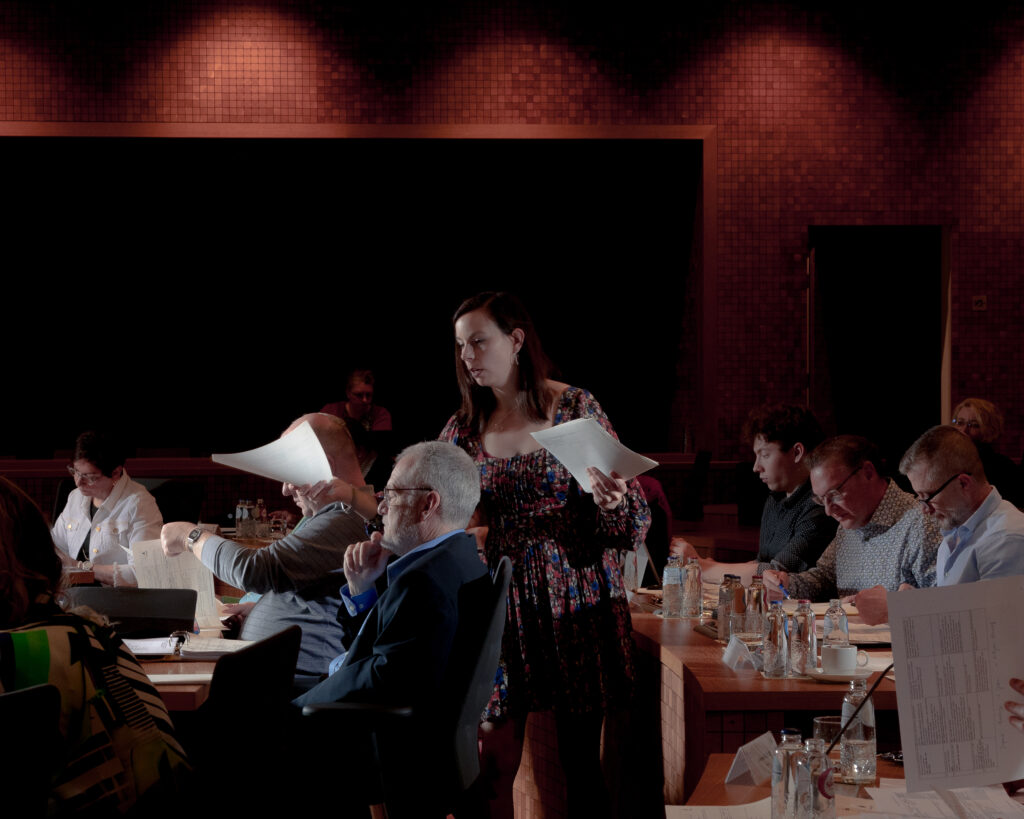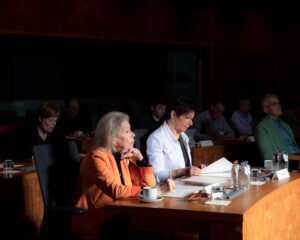In the German-speaking Eastern Belgian town of Eupen, we find an example of democracy that puts citizens at the heart of decision-making. This is done in the Bürgerrat, or citizen’s council, which is permanently in place to ensure citizens—who are drafted by lot—can have a say in which themes they wish to discuss and come up with policy recommendations to present to the local parliament. In this sense, ordinary citizens and elected officials are in recurring, structured dialogue.
The Bürgerrat is made up of 24 members, each serving on the council for 18 months. Once the council has decided on the appropriate themes for discussion, they organise the Bürgerversammlungen, or citizen’s assemblies. In these assemblies, up to 50 citizens come together to hear from experts, discuss the topic at hand and—together—find possible policy solutions to draft. Future council members of the Bürgerrat are pooled from previous participants of Bürgerversammlungen, to take on the responsibility of representing their region. The only requirements to become a council member are to be over the age of 16 and to not hold any political office. Council members do not need to be Belgian, and their costs will be covered while they serve.
A dentist by day, a mechanic by day, or a school teacher by day. All can be called to serve on the council and partake in this fresh model for political participation. The essence of the council is its consistency: this is not a temporary experiment, but rather a chosen method to ensure that there is no divide between the people and their elected officials. At a time where a global pandemic, economic insecurity, inflation and a boom in disinformation has impacted worldwide trust in government, systems of deliberative democracy can mend an often fractured bridge.

The Eastern Belgian region may be small, but according to David Van Reybrouck, a Belgian cultural historian and author of “Against Elections” published in 2016, it “has a substantial amount of power comparable to North Rhine-Westphalia and Scotland”. To try and institutionalise this kind of deliberative democracy, the setting of Eupen was a perfect fit. In his book, Van Reybrouck had outlined the idea for a different kind of democracy—one that relies on a system of sortition rather than election—where members of the public are selected to serve on a council through lottery. In 2018 Oliver Paasch, then the minister-president of the German-speaking community in Belgium, reached out to him to initiate the process. Van Reybrouck states that, at the time, the idea “existed on paper”, but had not yet been realised.
“There is a lot of distrust in politics. Citizens don’t trust their politicians, but politicians don’t trust their citizens either. That second distrust is much less strong in a parliament where MP’s work directly with citizens,” continues Van Reybrouck. The proximity of politicians and citizens plays a consequential role in fostering trust through exchange of good practices and policy-forming discussion.
A typical citizen’s council meeting bears no large difference from what you would expect to see in a parliamentary session. On 6 May 2023, the council members take their seats in the light-flooded plenary of the East-Belgian parliament in Eupen. The enormous curtain obscuring an equally enormous window is lowered and the agenda is set. The atmosphere is both tranquil and orderly. One can almost feel that personal gain is a non-issue in these sessions. After all, no one here has their potential re-election in mind. Still—and perhaps naturally—as the discussions begin, debates flare with passion. Members engage in civil, target-driven conversations that are only briefly interrupted to grab cups of coffee from a small, improvised table in the empty hallway outside.
Since its implementation in 2019, the citizen’s council thrives. In its conception, a process such as this one is ever-evolving. In fact, regular evaluations are scheduled to happen every two years—although the Covid-19 pandemic has delayed this process. The essence of deliberative democracy is that it is able to grow alongside the people participating in it. Van Reybrouck confirms: “This model can only survive if it has the capacity to learn and improve.” The citizen’s council of the future may yet be in the works.





